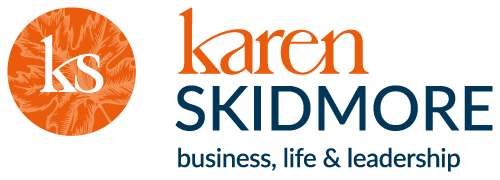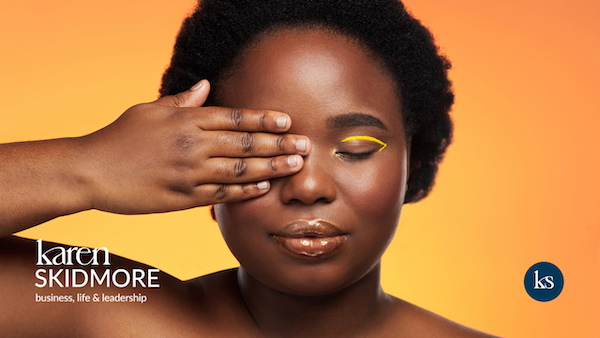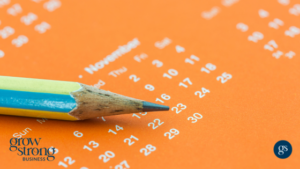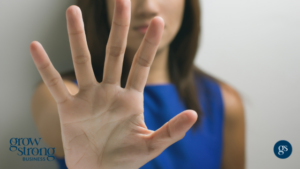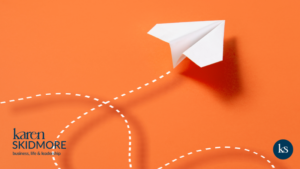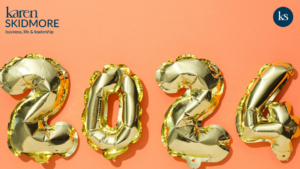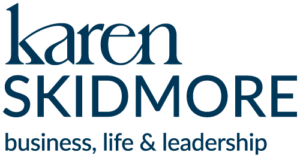Being able to make good decisions is one of the keys to adopting a CEO mindset and growing a successful business.
But decision fatigue is real; the more decisions you have to make each day, your ability to make decisions becomes worse.
We’re faced with thousands of them every day, from the mundane (What to cook for dinner?) to the business-changing (Can I trust this person?). And for most of us right now, we are still reeling from the past two years of making decisions about stuff we never had to think about before (Which way do I walk through this supermarket? Do I have to wear a mask? Is it OK to hug this person?).
I always prided myself on being able to make quick decisions. Even at the start of my career, I realised I was able to process information fast and see where the real problem was.
But as I got older, my brain got faster as I took on more and my expectations of myself climbed, and the decisions I was making became more knee-jerk and reactive as I jumped from one task to the next.
I simply couldn’t keep up with what life and business was throwing at me so when I hit my 40’s, exasperated by peri-menopausal symptoms of brain fog and exhaustion, I found that I didn’t trust myself to make good decisions any more. And this had a direct impact on my business.
Procrastination not only slows down growth … it’s exhausting!
To be able to get better at making good decisions, it’s important for us to learn how to first trust ourselves, our own judgement and instincts.
The first step in trusting yourself is knowing that you don’t have to be good at everything, all the time.
I get that we have incredibly high expectations of ourselves, largely because of our society’s expectations (You can have it all; be a perfect mother AND run a successful business), but also because of experiences we had growing up both at home and at school. But let’s be real: nobody is perfect. Nobody ever will be.
No matter how much we try to make ourselves into some sort of superhuman machine, everyone drops a ball or makes a mistake from time to time. And that’s okay! It doesn’t mean we’re horrible people or should feel ashamed about ourselves; it just means that being human means not being perfect all the time.
So giving yourself a break and being kinder to yourself, particularly on the days you feel more tired than usual or you’re juggling family needs, is critical to allowing yourself the time to step back and give yourself some breathing space.
Trusting your gut is something you have to work at.
The older we get and the more responsibilities we take on, the busier our heads get and the longer our to-do-lists grow. When your head starts controlling your life, it’s easy for it to override any intuition or instincts you may have. And when you get so busy that you forget to give yourself the space to hear the advice from inside of you, that connection can get cut off.
It’s the same as working out and keeping fit; if you stop, your body loses the muscle definition you gained, and your fitness levels go down.
The next time you are faced with a decision, instead of panicking or saying “I don’t know” – take a moment , close your eyes and listen closely inside yourself first. If you really don’t know how to do this (and yes, ten years ago I was so ‘in my head’ that I really didn’t know how to hear what my instinct was telling me!), then take note of my next point.
Spend more time in your body.
Many of us will exercise for the sake of fitness and health, measuring success by steps or sweat. But because so much business is often solved in our heads, these kinds of exercises can feed the brain; giving you more things to take action on and complete.
Spending time moving your body consciously can really help you connect with the neural pathways that run around your body. Movement such as dance – prancing around the kitchen rather than following a structured class – and slower walking focused on your posture – noticing how your feet connect with the ground with each step – can be simple ways of sensing your body and spending time ‘out of your head’.
Recognise that fear is different from intuition
… and sometimes it can be good to take the moment to ask the fear what it may be trying to tell you. Is there anything that you can put in place to make your next steps less risky for you? Perhaps you need more time to put your decision into action … maybe you need to hire some help?
If you choose to ignore your fears, you may find that you procrastinate and pull yourself back from taking action. So use your fear to shine a light on anything that you may avoid simply because it feels uncomfortable as this can be helpful in making sure you don’t avoid taking action on your decisions.
Be prepared for change, even if it means sacrificing some things you really care about.
Trusting yourself means putting your faith in your ability to make good choices and decisions. It means taking risks without being afraid of the consequences.
If you really want to take your business up a level, then there is every chance you are going to have to stop doing some of the things you are doing right now – and yes, that includes certain clients, programmes and team members you may really care about – and do something different.
This may mean that you stop offering a particular service, programme or product; it may mean you have to change your pricing structure; it may mean you have to fire one of your team members.
You can not grow a business without change. Get comfortable with that concept because trusting yourself means knowing when to let go and when to hold on.
You must trust yourself even when the outcome seems uncertain and you may not know all the answers.
One podcast I’ve got into recently is The Diary of a CEO. I was particularly taken by one of his more recent ones – Moment 54: How you should make every big decision with guest Rochelle Humes.
They reference a conversation he had with Barack Obama and his 51% decision making rule. Steven says “It comes down to if we are always looking for 100% of the facts, data and certainty to get our decisions over the line, it leads to huge procrastination and time-wasting. Getting to that 51% is a much more efficient system, and it reassures us that it will be the right decision to make.”
Knowing that we can make another decision or even reverse it if needed can open us up to bigger thinking and bolder decision making … and that the cost of procrastinating and trying to be more than 51% in favour for, or against of that decision is potentially huge.
I like this idea of having your logic brain to be only 51% convinced … it opens up to trusting our intuition more.
Next week, I want to dive into the importance of slowing down, and how going slow can actually speed up your progress. So for now, comment below and let me know what resonates with you here.
Until next time, do less, be more, play bigger.

Are you ready to take your business to the next level?
Join me at Elevate – a transformational, all-inclusive business retreat at a luxury spa venue right in the heart of the beautiful Surrey/Hampshire borders countryside.
